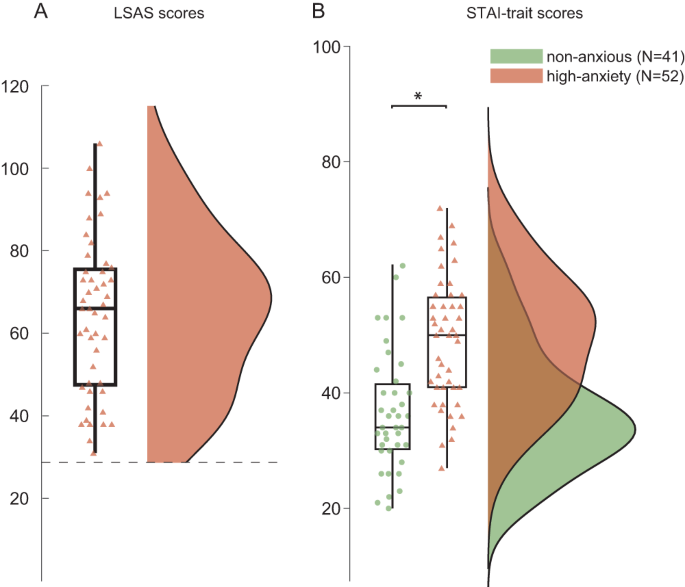Why anxious people find it difficult to control their emotions
This explains a lot. Basically, studies have found that a specific part of the brain behaves differently in anxious individuals, and this difference might explain why they struggle with emotional control. It’s like a traffic jam in the brain that makes it harder for the signals to get through, leading to difficulties in managing emotional reactions.

Anxious individuals consistently fail in controlling emotional behavior, leading to excessive avoidance, a trait that prevents learning through exposure. Although the origin of this failure is unclear, one candidate system involves control of emotional actions, coordinated through lateral frontopolar cortex (FPl) via amygdala and sensorimotor connections. Using structural, functional, and neurochemical evidence, we show how FPl-based emotional action control fails in highly-anxious individuals. Their FPl is overexcitable, as indexed by GABA/glutamate ratio at rest, and receives stronger amygdalofugal projections than non-anxious male participants. Yet, high-anxious individuals fail to recruit FPl during emotional action control, relying instead on dorsolateral and medial prefrontal areas. This functional anatomical shift is proportional to FPl excitability and amygdalofugal projections strength. The findings characterize circuit-level vulnerabilities in anxious individuals, showing that even mild emotional challenges can saturate FPl neural range, leading to a neural bottleneck in the control of emotional action tendencies.Source: Anxious individuals shift emotion control from lateral frontal pole to dorsolateral prefrontal cortex | Nature Communications